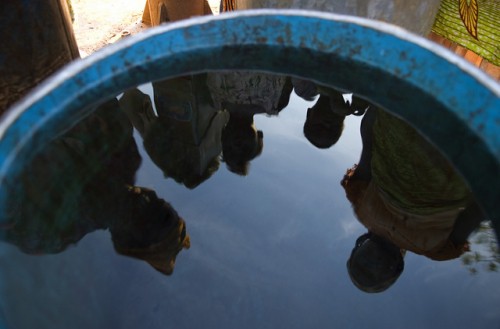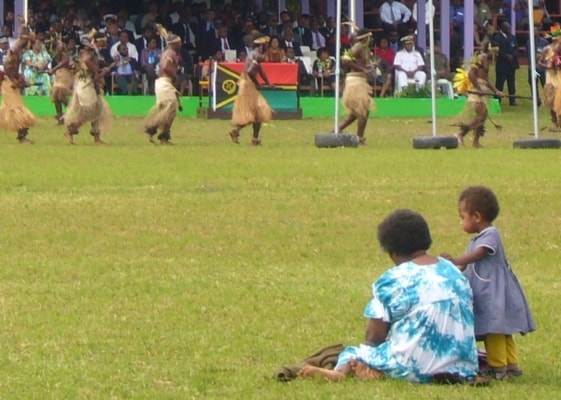Next week’s meeting of the Thinking and Working Politically Community of Practice will focus on gender at an opportune time. It follows a spate of interesting papers, blog posts and talks about the relationship between ‘thinking and working politically’ and gender issues.
These have set us thinking that – rather than keeping the tools of power analysis and politics trained on other people, other organisations, other outcomes, as is usually the case – we need a shift of focus. We need to look in the mirror before we go much further.
Evie Browne’s GSDRC report for DFID on Gender in Political Economy Analysis set the scene by exploring how gender is incorporated into PEA – or mostly isn’t – and which tools are used to do this.
ODI’s recent report ‘Support to women and girls’ leadership: A rapid review of the evidence’, by Tam O’Neil & Georgia Plank, with Pilar Domingo, and two DLP concept briefs, Gender and Power by Diana Koester and Gender, Sexuality and Inequality by Gillian Fletcher, take the discussion forward.
These papers provide a useful summary of:
- why a better understanding of gender, sexuality and power relations by donors is needed if development is to be ‘politically smart’, and why addressing gender equality is inherently political;
- what and who a politically-informed approach to supporting gender equality would need to involve, by working with a wider set of actors and through informal processes and spaces;
- how donors might need to think about these issues – by addressing gender equality as an ongoing long-term institutional process, not just the ad hoc building of individual skills, and by examining their own gendered organisations.
- and what further research is needed.
Duncan Green has also recently commented on the ODI paper and one of the DLP papers, and on Oxfam’s own work on women’s leadership and the IDS Pathways research, drawing out some of the ‘success factors’ that lie behind effective women’s leadership.
A number of useful papers and blogs on gender and political settlements and gender and political inclusion have come from the Effective States and Inclusive Development Research Centre. ESID has also produced Researching the politics of gender, which emphasises the importance of historical analysis of women’s political role during critical moments of state formation, and their role in informal as well as formal institutions and spaces. Through four case studies, it illustrates the value in exploiting ‘the convergence between the political settlements framework and recent advances in the feminist literature on women in politics’ and provides an analytical framework to do so. The authors suggest that this can both strengthen work on political settlements and benefit feminist analysis.
Raewyn Connell’s great talk at LSE on ‘decolonising gender’ is not linked specifically to development. However, it reminds us of the dangers of locating gender debates too centrally in a global political economy of knowledge production which is largely shaped by the power and wealth of the global North. She suggests we need to call on a ‘richer history of gender struggle’ than that represented in the ‘northern-centred economy of knowledge’. We should draw more on the global historical archive of feminist activism, research and thinking around the world. For instance:
- Kartini, the pioneering feminist educator from Indonesia who is still inspiring feminists 100 years after her death;
- He-Yin Zhen and the women of the May 4th movement of 1919 in China;
- Bina Agarwal and particularly her work on the importance of understanding issues of land ownership and gender relations; and
- the women of the MST movement in Brazil.
At the end of her talk, Raewyn notes that feminist scholarship always needs to be linked to practice, struggle and activism, but wonders if there is a need to think and work politically more in global arenas. She argues that this may be necessary because gender relations are increasingly formed in international spaces – through transnational corporations, for instance. She wonders if we could learn from the Latin American feminist encuentros in working out how to bring activists, social movements, femocrats and researchers together to address the institutionalised masculinity that pervades most transnational spaces.
Finally, the most visible manifestation of power and politics is money and funding. As Lydia Alpízar Durán has recently noted on the AWID website, there is growing evidence that ‘women’s movements have been the key drivers defending women’s human rights and gender justice worldwide’. Yet the median budget for a 740-strong sample of women’s organisations around the world looked at by AWID was just US$20,000. Durán suggests that at the upcoming 3rd International Conference on Financing for Development, ‘it is critical to remember that real systemic impact for women’s rights needs significant resources’.
To us, this all suggests the need to use the tools of power analysis and politics to examine ourselves. It suggests that this will need to be a key part of the agenda at next week’s Bangkok meeting.











